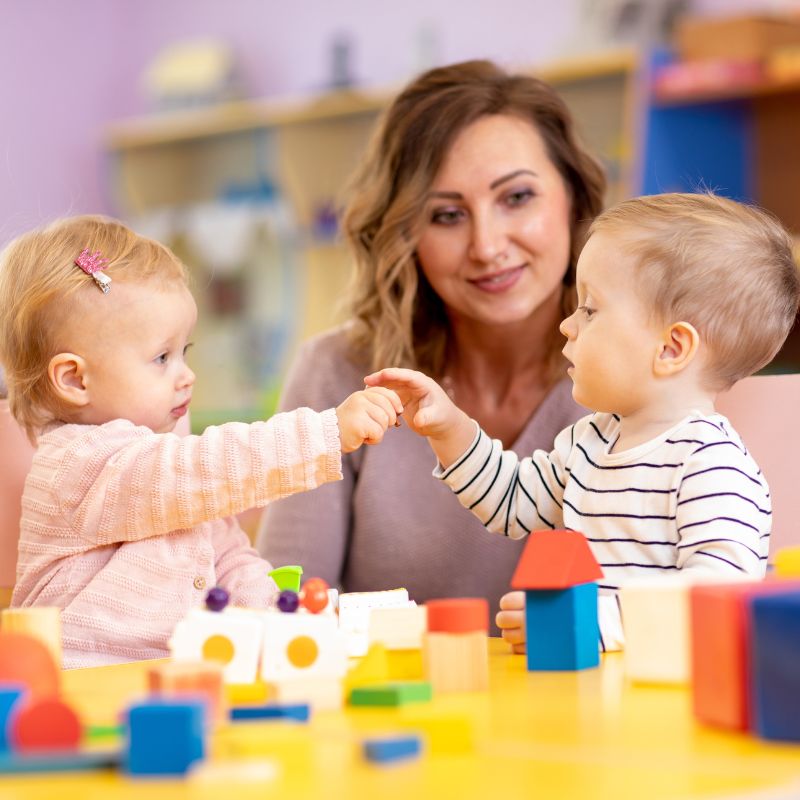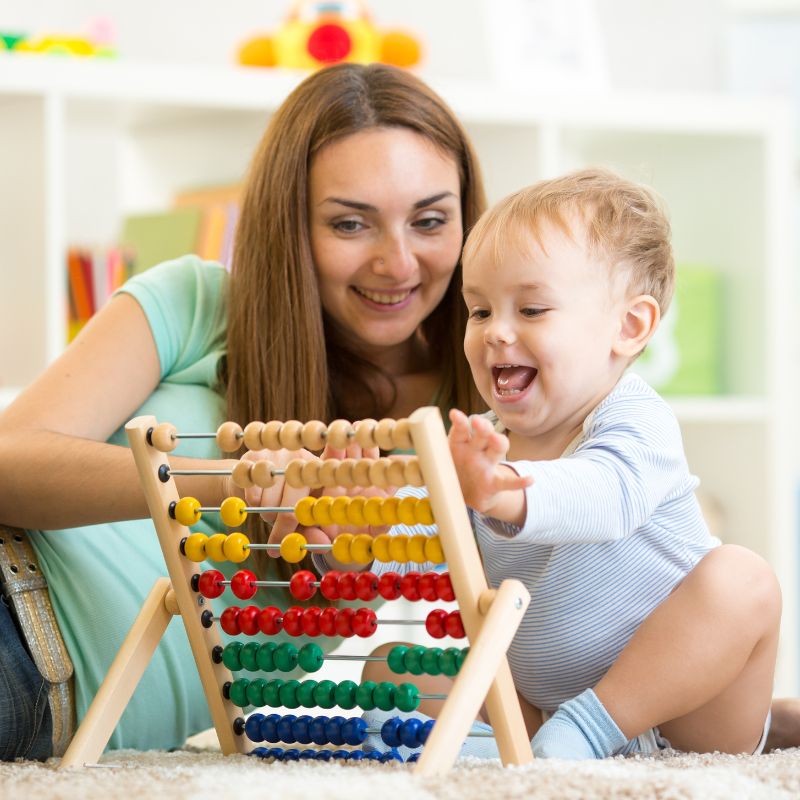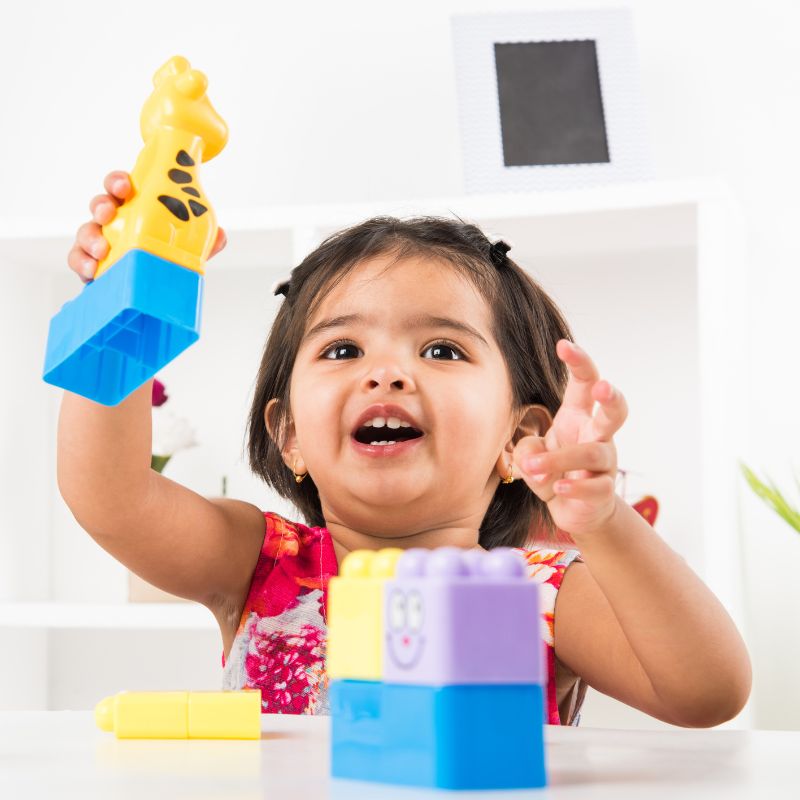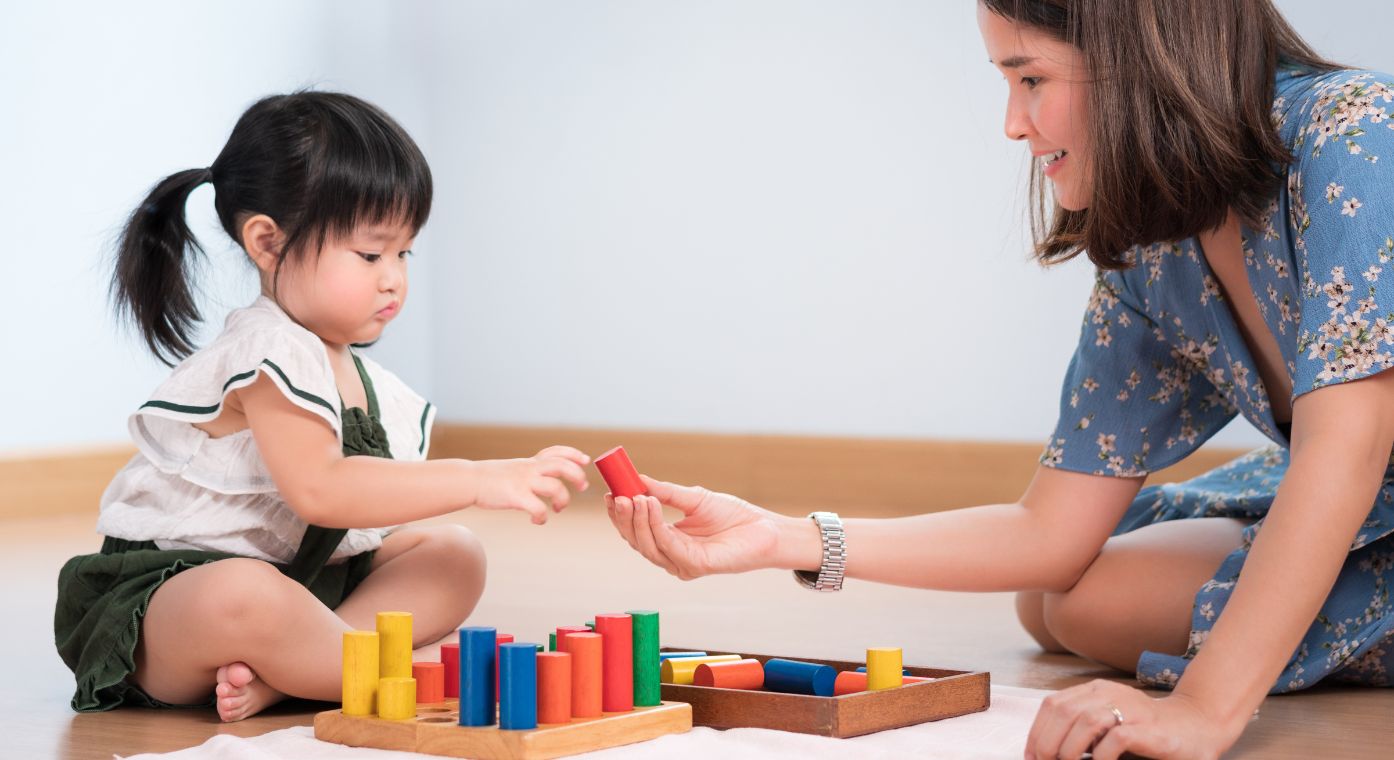Not All Early Learning Centres Are Created Equal
“If we love our children and want them to thrive,
we must allow them more time and opportunity to play, not less.”
Dr Peter Gray, psychologist, research professor & author
Education during early childhood is not like a race to see how quickly a child learns to read, write, and count. Early childhood is a time with a narrow window where the gap closes quickly, this is why it is important to develop at a pace that is right for each child.
However, at most early childhood learning centres, the joy of play and learning has been taken out of context. The objectives of getting preschoolers excited about learning, helping them build friendships, or promoting their wonder about the world around them are given a backseat or worse ejected from the curricula.
At such early learning centres, children are assessed on the basis of the grades they score on standardized tests and are academically primed to be ready for kindergarten. Their focus on only academics demands that preschoolers behave in ways that are unreasonable to expect at such a tender age. And when they’re unable to do so — getting frustrated, acting defiant, and refusing to participate — they’re labelled as troublemakers, hyperactive, or as socially immature.
Their focus is primarily on the wrong priorities that limit a child’s future by denying her the opportunity that nurtures and help realize her full potential. Leaving very young children without the benefits of learning how to learn!
Learning how to learn

Then there are other preschool learning centres whose agenda and priority are totally opposite. These centres realize the importance of early learning, and promote hands-on learning, social interaction, sensory activities, and real-world experiences, providing a solid foundation that puts a child’s future learning on a smoother and accelerated path. One that helps children stay stress-free, and become agile, creative, independent-minded, and well-adjusted individuals who will grow up to make a positive contribution to society.
The teachers at such early learning centres aim to promote enthusiastic life-long learners who can think for themselves, work well with others, use their imaginations, and solve problems in creative ways. What Professor Nancy Carlsson-Paige, a child development expert & author has to say supports this approach.
“We have decades of research in child development and neuroscience that tell us that young children are more inclined to learn actively – they learn to move, use their senses, get their hands on things, interact with others, create, innovate and invent”
Choosing the right preschool Is Critical

In fact, it is among the most important decisions you as a parent have to take. While you may find it hard to send your toddler off to early learning centres for the first time, it is critical for parents to ensure and give their children the right early childhood learning centre exposure for quality education. Help build a strong foundation in social, pre-academic, and general life skills that will help their child later when she is ready for regular school.
Learning to be good learners:
Little children learn by playing. If a child is exposed to an early childhood learning centre environment that is overly academic, their sense of curiosity may diminish and may lead them to switch off completely from wanting to learn more. Remember, the right early learning centre preschool ensures that your child encounters innumerable opportunities to learn in ways that hold her interest, developing a positive association with learning.
Finetuning social skills:
At the right early learning centre, children spend extended amounts of time with other children whose backgrounds may differ from their own. This creates opportunities to learn how to interact make friends, learn to cooperate, listen, and build on a child’s basic conversation skills.
Improving the sense of control:
When children interact, play and engage in activities with other children, minor conflicts surface and may trigger anger and frustrating emotional challenges and experiences. These are the “teachable moments” only the right early learning centre can anticipate and respond to by providing opportunities for young children to notice and observe how their behaviour impacts others. These social and emotional development moments enable a young child to practice interpersonal problem-solving skills. So when the time comes for them to leave their early learning centre, they are ready to leave with emotional skills they could use for the rest of their lives.
Boosting pre-literacy skills:
At the right early learning centre, your child will pick up new skills that foster easy learning. Participate in a variety of games and activities such as singing alphabet songs, learning rhymes that help distinguish between sounds, and picking up the habit of listening with attention when hearing stories,
listening to lessons and to conversations. Children also develop a sense of excitement and are motivated to continue with their learning.
Making math simpler & easier:
The right preschool does not push children to learn math before they are ready. It waits, patiently to be able to lay a firm base by involving young children in fun activities and through assisted play to make them grasp the basic concepts of math through matching, classifying, and number crunching games, as well as interesting board games.
Nurturing imagination & creativity:
The importance of early learning lies in setting up and creating an environment for children that encourages exploring and discovering. Nurturing their imagination to fuel creativity. Trained teachers help children articulate individual ideas and thoughts. Asking questions, and listening to ideas expressed by other children. The staff does not insist on pushing correct answers or imposing behaviours that are unnatural for children.
Making the right choices:
When attending the right early learning centre, children get to choose which of the activities they’d like to participate in. They not only get to follow their individual interests but also learn decision-making and learn to be responsible for their actions. Teachers keep a close watch on which activity their child is most interested in. And when she is unsure of how to join other children’s play, they readily offer suggestions on ways to join a group.
Helping each other:
In addition to taking care of themselves, a child in the right early learning centre learns how to take care of others. Teachers encourage a child to take the initiative and help others learn skills she happens to be most competent in. Your child may even begin to view herself as a mentor to children her age. Helping out other children, by setting up activities and leading other children in the class.
Improve language skills:
In a language-rich environment, your child will develop capabilities by learning new vocabulary while participating in new activities. Ask thought-provoking questions. Try out new things. Actively listen to read-aloud books, act out stories and sing. By participating in the right activities that support language development, preschool children gain a big advantage by learning to communicate effectively.
Improve cognitive skills:
It is proven that children build and improve their cognitive skills when they are actively involved in activities that challenge them. The right cognitive development learning centre encourages children to try new ways, solve problems, and simply observe the world around them. The right preschool focuses on these types of activities, and your child will learn more as a result.
Developing motor skills:
While being smart is important, there are other skills your child will quickly pick up. The right preschool has activities designed to help children develop physical coordination and fine motor schools. Your child is encouraged to develop fine muscle control, hand-eye coordination and strengthening of her fingers with simple projects that involve threading beads, drawing, or even learning to handle cutting with a pair of safe scissors. A child is encouraged to challenge herself by jumping, skipping, hopping or climbing.
The first school before kindergarten

There are basically two types of parents: One that believes their children need a strong pre-math and pre-literacy foundation to succeed later on. While others who are interested and want to ensure their children are exposed to more structured play and activities that help their children explore, discover and enjoy learning to learn.
Improve a child’s social and communication skills so that children are less likely to struggle or have a negative experience when in kindergarten. Learns how to establish a strong emotional link as she will have a deeper understanding of the world.
Only the right preschool can provide both kinds of learning opportunities for children. More than anything else, the right preschool helps young children develop all the skills they will need to grow throughout their lives while they are still young!
About My Gym
My Gym involves children in dynamic games, physical activity and movement that help in building neural networks in the brain. Making it easier for children to acquire intellectual skills, navigate complex social situations, and nurture emotional development.
To find out more about how My Gym plays a key role in supporting “whole-child development,” please visit any of our centres. Choose a day when you will be relatively free and come over with your child in tow. Your child could be an infant (as young as 6 months), a toddler or a preschooler, age is not a bar for enrolling.
My Gym has specially designed whole-child development programs that lay a firm foundation for personal, academic and future growth by involving your child in age-appropriate structured and unstructured physical activities, as well as developing thinking and problem-solving skills.
Please note: My Gym classrooms are thoroughly sanitized every day — the tables, the chairs, the children’s activity stations and everything else the child might touch is made safe and clean. Please wear a mask, wash hands frequently, and practice social distancing.



